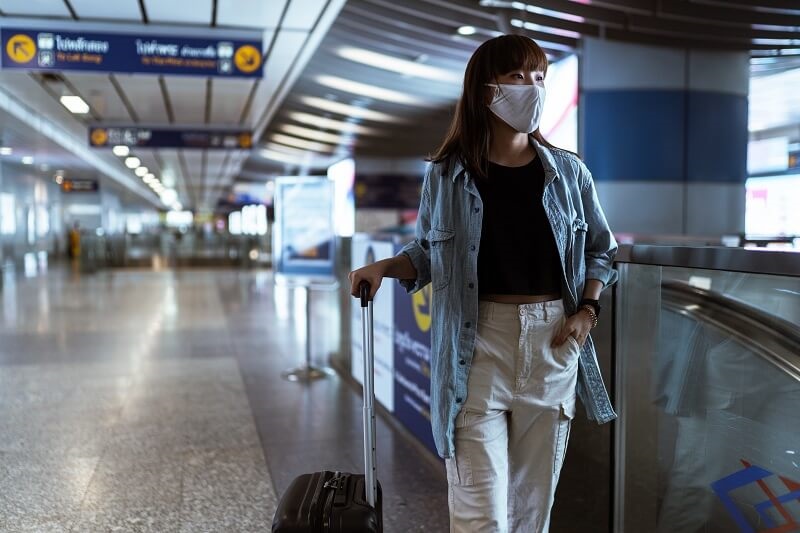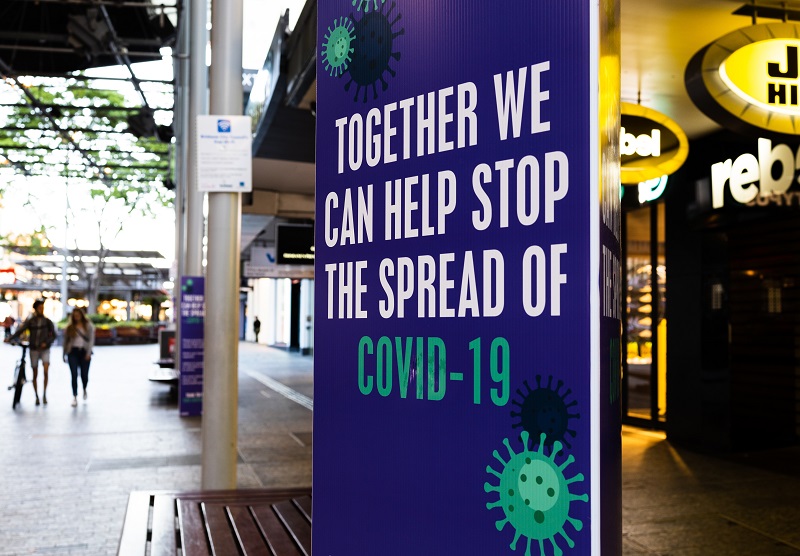The Coronavirus is making people restless and scared. Regardless of what people do, where they live, and what their age is, Covid-19 is making their lives increasingly difficult and stressful with each passing day.
In 2019, covid-19 was found in Wuhan, China, and since then, it has spread across the globe and has caused massive hysteria. It is a virus that is spreading at a massive speed, infecting millions daily. It has already affected millions of lives and is continuing to do so. Many countries are facing the second wave of viral infection.
However, as defined and guided by WHO, CDC, and other medical associations and authorities, one can stop the spread. If the virus cannot go from one person to another, the spread will stop, and eventually, this pandemic will come to an end.
One can do many things to avoid the viral spread and stop infections on various levels. Read ahead to know more about how one can stop the spread and keep themselves and the people around them safe during these dangerous times.
There are several guidelines given by the top authorities and doctors across the globe when it comes to staying safe. These guidelines not only help in protecting oneself, but also in protecting the other people around them.
Distance of 6 Feet Apart
This virus is spread through droplets and the air. This means when one coughs or sneezes, the droplets can reach others through the air. It is one of the biggest reasons why Covid-19 is spreading so quickly. This is also why authorities have advised people to stay away from each other.
There should be 6 feet between people in public spaces. This will ensure that people do not transfer their viral droplets to others. Social distancing should be mentioned in offices, shops, restaurants, public transport, etc.
The general public should maintain social distancing in every circumstance. Also, healthy people should maintain at least 6 feet from the sick people who are infected with covid-19.
Wearing Masks
Masks are essential in covering the nose and mouth for everyone. These masks help in curbing the spread effectively. When people wear masks, they tend to spread fewer cough and sneeze droplets around. It means the droplets do not get suspended in the air. And it will help in stopping the spread to an extent.
There is a vast number of styles of masks one can choose from. However, it is advised that the mask should be multi-layered and should fit snugly onto the face. There should not be any gap on the sides, and the mask should be changed as frequently as possible.
Few things to keep in mind:
- Wear masks whenever you are near people or in public spaces.
- Masks should fit properly, and thus check the size.
- Always wash your hands before touching the mask.
- Masks should have filtering layers but should not make it hard to breathe.
- Anybody above the age of 2 years should be wearing a mask when outside.
Ventilation and Open Spaces
Viral infections that spread through droplets or air tend to spread readily in non-ventilated or poorly ventilated spaces. That is why one should avoid closed and confined spaces where there are a lot of people.
Try to stay away from enclosed spaces like gyms, bars, restaurants, lifts, and other spaces where the ventilation is less. It is better to stay in open spaces so that the droplets do not spread easily. It is also suggested that people keep their homes, offices, and other places well-ventilated by keeping the windows open. Ventilation will not trap the viral droplets and particles in the air of enclosed spaces. It will reduce the chance of infection.
Proper sanitization
Sanitizing hands and surfaces is incredibly important. It will help in removing the viral particles from the surfaces and hands. One can use soap and water, or sanitizer rubs to sanitize their hands. Be sure to use sanitizer with 60% alcohol or more to keep the hands clean. One should make a habit of carrying sanitizer with them when outdoors and should sanitize often.
It is crucial to sanitize the hands before touching the nose, eyes, and mouth area. Also, one should sanitize:
- Before eating or drinking anything.
- Before taking off or touching the mask.
- Before touching the face.
- After being in any public space like washrooms, lifts, stairs, or public transport.
- After coughing or sneezing.
- After taking care of anyone infected.
Also, one should sanitize the surfaces and objects often. The doorknobs, tables, phones, kitchen tops, and to any delivered packages should all be sanitized before handling.
Sneeze and cough with cover
Never sneeze or cough in the open as it will help spread the virus and put others in the same vicinity at risk. Everybody, whether they have symptoms or not, must follow strictly.
If one is wearing a mask, it will prevent coughing and sneezing droplets to escape the mask. But if one is not wearing one, they should use their hands or tissues to cover their mouth or nose. Also, throw the tissues immediately in a trash bin and sanitize or wash your hands instantly.
Vaccination
Recently, vaccination doses have been circulated in different parts of the world. If one’s local area has started the vaccination drive, it is better to get vaccinated immediately. Vaccination reduces the chances of getting infected and also boosts immunity to a larger extent. It will help in keeping oneself safe and in keeping the people around them safe from this virus.
Bottom line
Covid-19 is something that one should not take lightly. Every single citizen from countries around the world should take required precautions and safety measures to keep themselves and the people around them safe. From sanitizing hands regularly to wearing a mask and keeping a social distance of 6 feet between people, one should try everything to keep the virus from spreading. When every individual out there take precautionary measures, the countries and communities will become strong enough to fight off this pandemic.










